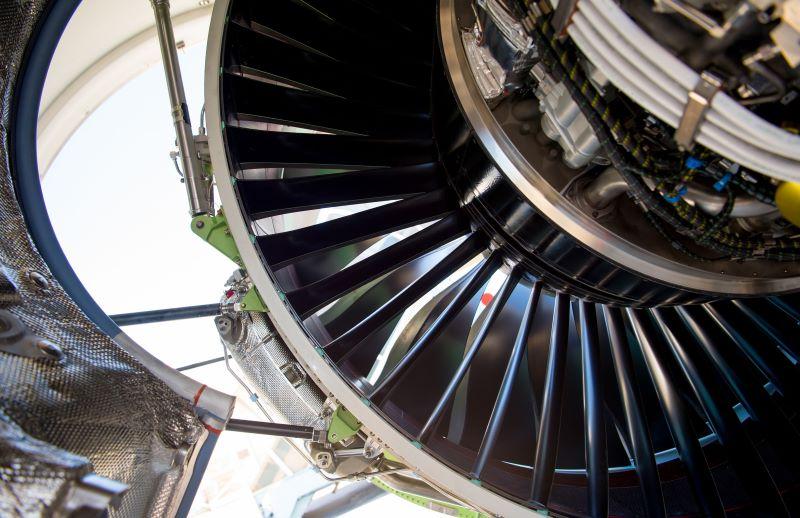
Pratt & Whitney is targeting late 2023 for publishing the next phase of its PW1100G inspection program with engine removals tentatively slated to start in early 2024.
Information shared at a recent operators’ conference and seen by Aviation Week shows Pratt plans to issue sets of “special instructions” (SIs) and service bulletins targeting two parts groups that have been identified as having contaminated powder metal that may cause cracks. One will flag high pressure turbine (HPT) stage 1 and 2 disks, and the other will target high-pressure compressor stage 7 and 8 integrated blade rotors (IBRs) as well as aft hubs. The special instructions will list affected engines by serial number.
Pratt’s instructions and engine-removal deadlines are expected to be mandated by the FAA and other regulators.
The operators’ briefing does not detail the number of engines in phase two. Pratt has previously said that 750 engines could be flagged for early removal by the end of 2024, and another 500 will come in as part of scheduled overhauls. The first phase, identified in an Aug. 4 SI, flagged 137 of the highest-time engines for removal by the end of September.
The inspection ramp-up has the number of idled A320neos growing quickly. This next phase is expected to lead to the most groundings during what is expected to be a three-year process as engines come off wing much faster than Pratt’s maintenance network can provide needed capacity or parts to keep the engines moving.
Pratt projects the peak number of groundings will be 600-650, sometime in the first half of 2024. Average groundings will be around 300 per day throughout the three-year fleet management plan, which is expected to touch some 3,000 PW1100Gs.
Aviation Week Fleet Discovery shows 336 parked or stored A320neos as of mid-October—nearly 25% of the delivered fleet. The comparable figure at the end of August was 175 aircraft, or 13% of the delivered fleet.
Service instructions slated for releases in November will be similar to the ones approved for the initial set of engines, the Pratt briefing shows. Disks on 33,000-lb thrust variants will need angle ultrasonic scan inspections every 2,800 cycles, while ones from 27,000-lb thrust engines will be inspected every 3,800 cycles. Affected HPT disk life limits are reduced to 5,000 cycles for the higher-thrust engines and 7,000 cycles for the lower-thrust variants.
Affected HPC IBRs and aft hubs will be flagged for checks “at normal shop visits” when work scopes include access to the parts, the briefing said. Life limits will be reduced to the same 5,000 and 7,000 cycles for higher- and lower-thrust engine parts.





